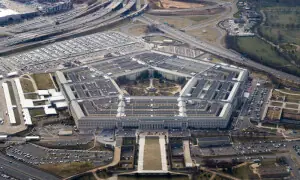Huawei has replaced thousands of US-banned parts with Chinese versions: founder
2 min readBEIJING: Chinese technology giant Huawei has replaced thousands of product components banned by the United States with homegrown versions, its founder has said, according to a transcript of a recent speech released by a Shanghai university.
A leading supplier of telecom gear, smartphones and other advanced equipment, Huawei has been repeatedly targeted by Washington in recent years over cybersecurity and espionage concerns.
The administration of former president Donald Trump effectively barred American companies from doing business with the firm, and his successor Joe Biden has imposed further sanctions including a ban on sales of new Huawei equipment in the United States.
The moves have forced the firm to find new ways to obtain semiconductors and other parts, with founder Ren Zhengfei saying Huawei has replaced more than 13,000 components with domestic versions in the past three years, according to the transcript posted by Shanghai Jiao Tong University on Friday.
The company has also redeveloped more than 4,000 circuit boards for its products, Ren said during the talk, which took place February 24.
“As of now, our circuit board (production) has stabilised, because we have a supply of domestically produced components,” he said.
He did not give details about which specific parts were being sourced from within China or what proportion of Huawei’s total supply they represented.
AFP could not independently verify Ren’s claims, and a Huawei representative gave no further comment when contacted by AFP on Saturday.
Responding to a question from an audience member, Ren said there were still “difficulties with manufacturing advanced microchips in China, so we have to find other ways of making up ground (with the US) on chips”.
He added that Huawei spent $23.8 billion on research and development last year, and would invest more in the coming years as profits rise.
“We’re still in a difficult period, but have not stopped on the road towards progress,” he said.
For the latest news, follow us on Twitter @Aaj_Urdu. We are also on Facebook, Instagram and YouTube.


























Comments are closed on this story.